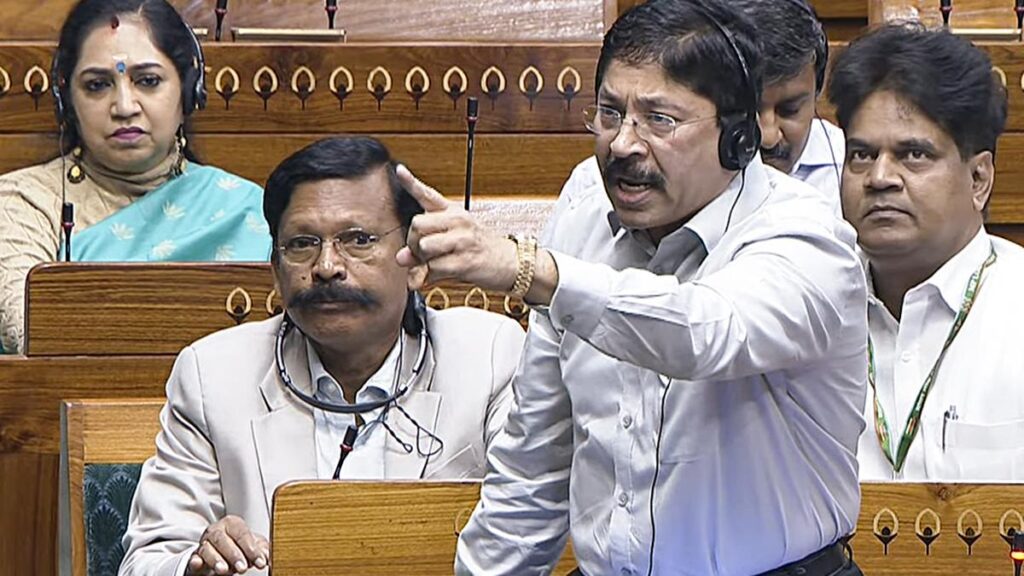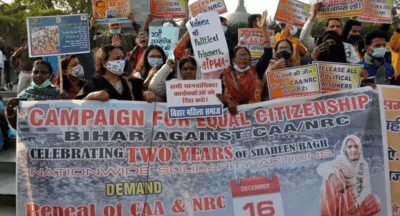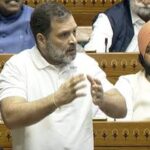A contentious debate unfolded in the Lok Sabha on Tuesday as DMK MP Dayanidhi Maran challenged the inclusion of Sanskrit in the simultaneous interpretation services, alleging it as an imposition of RSS ideology and a misuse of taxpayers’ funds. Speaker Om Birla rebuffed these claims, emphasizing Sanskrit’s integral role in India’s linguistic heritage.
Following the Question Hour, Speaker Birla announced the addition of six languages—Bodo, Dogri, Maithili, Manipuri, Sanskrit, and Urdu—to the existing simultaneous interpretation services in Parliament. This initiative aims to promote linguistic diversity and inclusivity within parliamentary proceedings.
Maran voiced his objections, questioning the necessity of Sanskrit interpretation by stating, “Taxpayers’ money is being wasted by providing simultaneous interpretation of Lok Sabha proceedings in Sanskrit due to the RSS ideology.” He further contended that Sanskrit is scarcely spoken across the nation, rendering its inclusion impractical.
In a firm response, Speaker Birla retorted, “In which country are you living in? This is India. India’s primary language has been Sanskrit.” He underscored that the simultaneous interpretation services now encompass all 22 recognized languages, not solely Sanskrit, thereby reflecting the nation’s rich linguistic tapestry.
Education Minister Dharmendra Pradhan also criticized Maran’s remarks, labeling them as “unwarranted” and indicative of selective outrage. He asserted that engaging in divisive politics constitutes the real waste of taxpayers’ money. Pradhan lauded Speaker Birla for confronting the attempt to foster discord and create false dichotomies among Indian languages.
The Lok Sabha’s decision to expand its interpretation services aligns with efforts to uphold linguistic diversity and ensure comprehensive representation within parliamentary discourse. This move is anticipated to facilitate greater participation from members who prefer to communicate in their native languages, thereby enriching the democratic process.
However, the inclusion of Sanskrit has ignited a broader debate concerning its relevance in contemporary India. Proponents argue that Sanskrit, often regarded as the root of many Indian languages, holds significant cultural and historical value. They contend that its inclusion in parliamentary proceedings serves as a recognition of India’s ancient heritage and promotes scholarly interest in the language.
Conversely, critics, including Maran, argue that resources should be allocated to languages actively spoken by substantial populations. They express concerns that the emphasis on Sanskrit may overshadow other regional languages and could be perceived as an imposition of a particular cultural narrative.
This incident highlights the ongoing tensions in India regarding language politics and cultural identity. As the nation continues to navigate its diverse linguistic landscape, such debates underscore the challenges inherent in balancing heritage preservation with practical communication needs in official domains.
The Lok Sabha’s initiative to broaden its linguistic inclusivity reflects a commitment to embracing India’s diversity. Nevertheless, the discourse surrounding Sanskrit’s place in modern society remains a contentious issue, eliciting strong opinions from various quarters.
As parliamentary sessions progress, it remains to be seen how this linguistic policy will be implemented and whether it will achieve its intended goals of inclusivity without alienating certain segments of the population. The dialogue sparked by this development serves as a reminder of the delicate balance required in policymaking within a multicultural and multilingual nation like India.
In the broader context, this episode may prompt a re-examination of language policies in other governmental institutions and public domains, potentially influencing future decisions on linguistic representation and resource allocation. The outcome of this debate could set a precedent for how India navigates its rich linguistic heritage in the years to come.
The discourse also brings to light the need for continuous dialogue and consultation among stakeholders to ensure that language policies are inclusive, representative, and reflective of India’s pluralistic society. As the nation evolves, so too must its approaches to language and cultural preservation, ensuring that they align with contemporary realities and the aspirations of its diverse populace.
Ultimately, the challenge lies in crafting policies that honor India’s ancient traditions while accommodating the dynamic and evolving linguistic landscape of its present and future. This incident serves as a catalyst for such discussions, highlighting the complexities and sensitivities involved in language policy formulation in a country as diverse as India.
The reactions from various political leaders and the ensuing public discourse underscore the deep-seated connections between language, identity, and politics in India. As the nation continues to grapple with these issues, the importance of open, inclusive, and respectful dialogue cannot be overstated.
The Lok Sabha’s move to include additional languages in its interpretation services is a step towards greater inclusivity. However, the debates it has sparked indicate that achieving linguistic harmony in India’s parliamentary processes is a complex endeavor, necessitating careful consideration of the diverse perspectives that constitute the nation’s rich tapestry.




 Rahul Summoned by Court Over Army ‘Defamation’
Rahul Summoned by Court Over Army ‘Defamation’ 